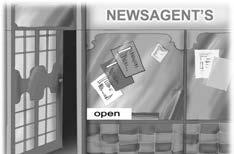
18 minute read
Lesson 2 Going Shopping
GOING SHOPPING GOING SHOPPING
VOCABULARY
1 Look, listen and repeat.



At the newsagent’s they sell newspapers, magazines, copybooks, pens. At the baker’s you can buy bread, buns, rolls, cakes and pies. At the butcher’s they sell meat, chicken and sausages. At the chemist’s you can buy medicines, toothpaste, shampoo and bars of soap.
2 Ask and answer in pairs using the words.

sweets; a toothpaste; buns; a parrot; a hat; a mug; a pair of shoes; a table; a pair of skis; oranges; books; a frog; medicines

110
A: Where can I buy... ? B: You can buy it at... A: Where do they sell...? B: They sell ... at...
Lesson 2

3 Read and fi ll in the words from the box.
Yesterday Mrs Stone went shopping. At the supermarket she bought many things: … of milk … of chocolate … of bread … of fl our … of tea … of coffee … of tomato ketchup … of meat … of cheese … of fi sh … of cola a bar, a bottle, a carton, a packet, a kilo, a loaf (loaves), a pound, a jar, a tin, a bag

4 Guess what they sell and say what you can buy at these shops.
The Sweet Shop
Super Sports Toys
Ted’s Fruit & Vegetables
Greengrocer’s Shop
Italian Furniture
Clothes for Ladies
DO YOU KNOW?
BAKER’S, GREENGROCER’S, BUTCHER’S is short for baker’s shop, greengrocer’s shop, butcher’s shop. Everybody knows it is a shop, so we can leave the word out.
For example: I’m going to the greengrocer’s to get some oranges and some tomatoes.
111
READING



1 Read and name some popular British shops. Shopping in Britain
When you want to buy something you go to a shop or market.
To buy food in Britain people usually go to the baker’s, to the butcher’s, to the sweet shop or to the greengrocer’s. If you need either sugar or rice, you go to the grocer’s. If you need fi sh, you go to the fi shmonger’s. At the dairy’s you can buy dairy products like milk or cream. But nowadays supermarkets become more and more popular.
They use the self-service system. It means you walk round the shop and choose what you want. You can use trolleys. At the exit you pay for all your goods at the cashier.
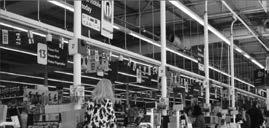

If you are a traveller in Britain, you should know some popular shops and supermarkets. Sainsbury’s are very big supermarkets. They are for richer people who want to do shopping once a week or even once a month. Tesco supermarkets are leaders, too. But they sell goods at cheaper prices. British Home Stores (BHS) is a group of large shops selling mainly clothes and other products for the houses.
112
Lesson 2
Buying clothes in Britain can be a problem for Europeans, because they have different size system. Ready-made clothes departments in London usually use both British and European sizes on the tags1 .
There are some traditions about shopping in Britain. Mothers usually buy clothes for their small children, but British teenagers usually buy clothes by themselves. The British usually buy food in supermarkets once a week.
Don’t forget that the British use ‘please’ and ‘thank you’ a lot.
VOCABULARY BOX
cash [k2S] cashier [k29Si3] cheap [tSI:p] goods [gUdx] price [prais] sale [9seil] self-service [0self9sE:vis] size [saix] trolley [9trAli] ready-made [0redi9meid]

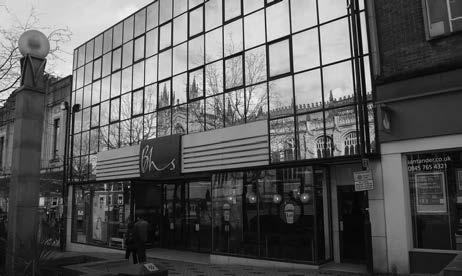
1a tag [t2g] — ярлик
113
2 Complete the sentences.
A 1 They usually buy food at the ........ 2 Supermarkets ........ 3 In the supermarket you ........ 4 If you are a traveller in Britain ........ 5 Sales are ........ 6 Sainsbury’s supermarkets are ........
B 1 Tesco supermarkets sell ........ 2 British Home Stores is a group of ........ 3 Buying clothes can be a problem because ........ 4 Ready-made clothes in London ........ 5 Teenagers in Britain ........ 6 Mothers in Britain ........ 7 You can hear ........ .
3 Ask and answer in pairs.
1 What can you buy at the baker’s? 2 What can you buy at the butcher’s? 3 You buy sweets at the greengrocer’s, don’t you? 4 Where can you buy sour cream? 5 Where can you buy fi sh?
4 Speak about shopping. Work in groups.
1 Do you like shopping? Why / Why not? 2 What kinds of shops do you like? Why? 3 What kinds of shops don’t you like? Why?

114

Lesson 2
5 Listen to the song and name the shops that are in the street where shops that are in the street where
John lives. IN MY STREET
I am John.
Let me tell you about my street. Let me tell you about my street.
It is not very long.
There are some shops in the street and a lot of trees.






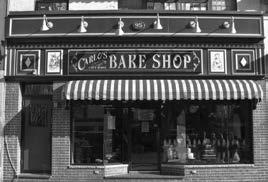
There is a baker’s shop with fresh bread and a greengrocer’s fresh bread and a greengrocer’s with fresh fruit and vegetables. I go to the supermarket every day. I go to the supermarket every day. It is next to my house.
It is not a busy street so we ride our bikes there. Some boys play ball in the street, but it is dangerous1 .
There are no tall buildings there, just family houses and small blocks of fl ats. There are a lot of cats in my street.
I have some nice neighbours. I love my street very much.
1dangerous [9deindz3r3s] — небезпечний
115










LISTENING
1 a) Before listening look through the photos and say what you see in them.

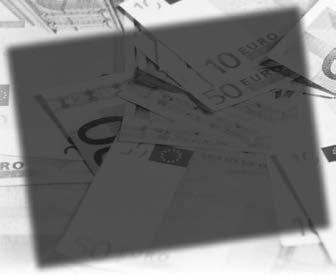

b) Listen and name the best-known shops in Britain.
If you go shopping in Britain it’s important to know that most shops open at 9.00 am and stay open all day till 5.30 or 6.00 pm. Some are open 24 hours a day. The best-known shops you can fi nd in any British town are Tesco, Marks & Spencer, a large clothes shop with a food section, and Boots, which sells mainly toiletries and medicines. If you need to change money you can do it at Barclays,
Lloyds TSB or some other British banks. Pounds and pence are the British money.



116
Lesson 2





c) Answer the questions.
a) When are the most shops open in Britain? b) What time do British shops stay open? c) Where do they sell clothes? d) Where do they sell toiletries? e) Where can you go when you need to change money? f) What is British money called?
2 a) Listen and read.
British Money [9mYynI] 1 penny, 2 pence [pens], 5 pence, 10 pence, 20 pence, 50 pence. 1 pound (£ 1) = 100 pence 5 pounds (£5), 10 pounds (£10), 20 pounds (£20), 50 pounds (£50), 100 pounds (£100)
b) Read and compare the sentences.
How much is it? How much are they?
How much is this newspaper? How much are these shoes?
How much is the dress? How much are the jeans?
How much is that book? How much are those two books?





c) Read and pronounce.
It is £15 (fi fteen pounds).
The dress is £50.25 pence (fi fty pounds twenty-fi ve pence).
They are £24 and 10 pence (twenty-four pounds ten pence).
The jeans are £35 (thirty-fi ve pounds).
117
3 a) Before listening name the things below.
blanket sheet
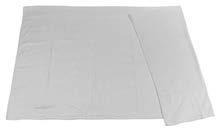
[9bl2Nkit]
pillow
[9pil3U] [SI:t]
towel
[taU3l]
b) Listen to the story about Mrs McBright’s shopping day and say what she bought for Betty.
VOCABULARY BOX
bargain [9b4:gin]
118 department store
[di9p4:tm3nt0stc:] expensive [0ik9spensiv] shop assistant [C9sist(C)nt] [C9sist(C)nt] silk [silk] suit [su:t] wool wool [wUl] [wUl]

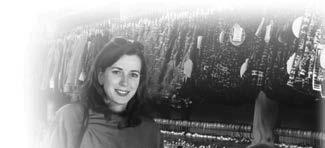

Lesson 2
c) Answer the questions.
1 What is Selfridge’s? 2 Where is this store situated? 3 What does the White Sale mean? 4 What did Mrs McBright want to buy? 5 What was the price of the towels? 6 What kind of sheets did she buy? 7 When will Mrs McBright get all she has bought? 8 What did Mrs McBright buy for her husband. 9 What did she buy for herself?
4 Work in pairs. Name:
the soft hair of the sheep something that is used to cover a bed things which are made of wool something that is used to put one’s head on something that is used on beds to keep people warm something that is used to dry parts of one’s body the word which is used to say that we need something
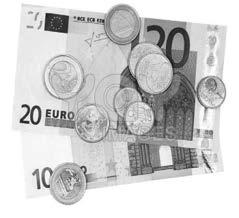
5 Listen and choose the correct words. In a Clothes Shop
Shop Assistant: May I help / kiss you? Customer: Yes, I’m looking for a book / sweater. Shop Assistant: What colour? Customer: Blue / Red. Shop Assistant: Here you are. Customer: How much is it? Shop Assistant: EUR 10 / EUR 20. Do you like it? Customer: Yes, it’s horrible1 / perfect. Shop Assistant: You can pay at the restaurant / cash register. Customer: Thanks.
1horrible [9hAr3bl] — жахливий
119
GRAMMAR
1 Ask and answer in pairs.
Where were you… …fi ve minutes ago? / yesterday at 3 pm? / yesterday at 9 pm? / last weekend? / last July? Who were you with?
2 Match and read the pairs aloud.
1 went 2 saw 3 could 4 said 1 5 got 6 had 7 read 8 came 9 became can see get go say read have become come
3 Listen to the rap and sing it along.
Great Past Simple Tense Rap
Anna read legends, Anna read tales, When she read her stories, Children said, “Great!”
120
Charlie came from England, Charlie went to the USA, His fi lms got the Oscar, And people said, “Great!”

When people saw Leo’s paintings, They said, “Great!”
Lesson 2
When Leo saw Lisa, He said, “Great!”

Mozart could write music, He could sing and play. When he became famous, People said, “Great!”
They all had good times, They all had bad times, They all became famous, And people said, “Great!”
4 Speak about your last visit to a department store or a supermarket. Say what you saw there, what you bought there, what the prices were, how much money you spent there.
5 In pairs ask and answer about shops you will go to and what you will buy when you come to Paris.
6 Look and think what you’ll buy for the party. a) You’ve got £20. 90p £ 1.40 £2
50p
80p
97p £ 2 55p
30p
121

b) Plan your party. Discuss it in pairs.
Example:
A: Will we need any bread?
B: Yes.
A: How much is it?
B: It’s 30p a loaf.
A: How many loaves will we need?
B: Four, I think.
A: No, three will be enough.
B: OK. Three. That will be 90p for bread.

7 a) Write as in the example.
slow – slower – the slowest wonderful – more wonderful – the most wonderful

interesting, large, famous, fantastic, expensive, good, cheap, bad, delicious, economical, convenient, small, close

b) Complete with the correct degree of comparison of each adjective in brackets.
The market is (close) … to the McBrights’ house than supermarket. Mrs McBright thinks the market is (good) … than the supermarket. Fruit and vegetables there are (fresh) … than vegetables and fruit in the supermarket, and they are also (cheap) … than the ones in the shops. Mrs McBright thinks the market is (exciting) … place in London. It’s (colourful) … than the shops in the high street. She thinks the market is (good) … place to shop in London.
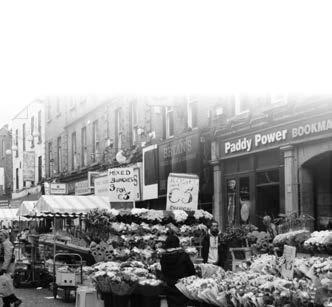
122

SPEAKING Lesson 2
1 a) Read the e-mail letters and speak on the girls’ impressions of shops in London.
To: Lilly From: Christie Subject: Shopping
To: John From: Mary Subject: Shopping

London is a paradise for shoppers. With their large selection of goods, there are famous department stores like Harrods and Selfridges. You can also fi nd designer shops, souvenir shops, well-stocked book shops, market stalls and many other kinds of shops. Second-hand shops are also popular with young people.
I know what I am going to get for you — that’s a surprise. But I don’t know what to get for boys. Can you suggest some presents for them?
Drop me a line soon.1
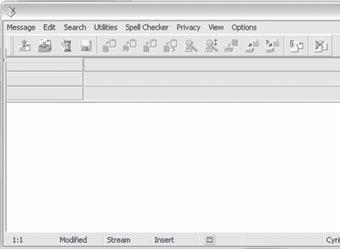
I like shopping in London because it’s got a lot of exciting shops. On Saturday Christie and I went to Harrods. I wasn’t surprised to see many people there. But the prices are disappointing. The clothes are expensive. I haven’t bought anything yet.

1to drop a line — накинути рядок (написати коротко) 2disappointing [0dis39pcintiN] — такі, що розчаровують
123
b) Answer the questions.
1 What kind of shops can everyone fi nd in London? 2 What kind of shops are popular with young people? 3 Has Christie bought any presents for her friends in Ukraine? 4 Where were the girls on Saturday? 5 What was the place like? What was the place like? 6 Has Mary bought any clothes? 7 Does Mary like shopping in London? 8 Why does Christie call London a paradise for shoppers?
VOCABULARY BOX
advertisement [ed9vE:tism3nt] customer [9kyst3m3] item [9ait3m] paradise [9p2r3dais] selection [s39lekSn] stall [stc:l] well-stocked [wel9stAkt]
2 In groups, discuss the prices in Britain of the goods below and compare with the prices in Ukraine.
a daily newspaper a litre of milk a loaf of bread a packet of cigarettes a packet of cigarettes a litre of petrol a pair of jeans a pair of jeans a cup of coffee a cup of coffee a small family car a small family car a cinema ticket a cinema ticket
124

Lesson 2
3 Read and act out the dialogues in pairs.
4 a) Put each dialogue in the right order and act it out. Work in pairs.

A: There is little fl our left. Will you go to the grocer’s and buy a bag of fl our, please? B: Shall I also buy a bag of sugar? A: Yes, please. Buy two bags of sugar and a packet of tea. B: What about salt? A: There is a lot. But you can buy a jar of sour cream and two bottles of oil. Is that OK?
* * * A: Good morning. What can I do for you? B: I want a pound of carrots and a large cabbage, please. A: Yes, certainly. Anything else? B: Some fruit, please, six oranges and two pounds of apples. A: Any grapes? B: No, nothing else, thank you.

Hello. Oh, I forget, I need a plastic bag, please. One kilo of English Cox apple, please. Thank you. Here you are. Hello. 90 p for a kilo. They are 20 p. Here’s the money and thanks a lot. Goodbye. How much are they?
125
b)
All right. Yes, two cartons. John, would you go and get some sugar? Yogurt? Shall I get anything else? Yes. How much shall I get? Oh, yes, get a bottle of milk or, perhaps two, and yes, some yogurt, too. Get one packet.
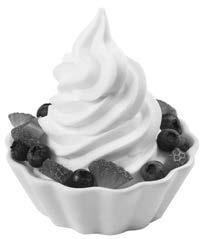
5 Look at the pictures and answer the questions below.
They are the 8 best-selling items in Britain.
Hula Hoops Potato Rings Dunlop Sports Shoes
Casio Watch
Heinz Baked Beans Colgate Toothpaste

126
Honda Moped Kellogg’s Cornfl akes
Levi’s Jeans
Why do Britons buy these things most? Would you like to buy any of these things? Why?
Lesson 2
6 Role-play in pairs. Imagine you are at Selfridge’s.
Pupil A, you are a shop assistant.
Pupil B, you are a customer.
Use the phrases from the boxes below.
Phrases for A
Can I help you? (A small one or a large one?) Yes, anything else? What size? It costs … Certainly, sir / madam. It suits you perfectly.
Phrases for B
Can I have … please? (A large one, please.) Yes, I’d like … I think … will be OK. Now I need … Can I try it / them on? How much is it / are they? Here is the money.
7 Role-play some situations on doing shopping at ready-made clothes department. Work in a group of three.
Collect some outdoor clothes like jackets and coats, and put them on a desk at the front of the class. One of you is a shop assistant.
127
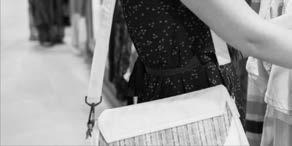
WRITING
1 Read the advertisement. Use it as an example to write your own advertisement for one or two best selling things in
Ukraine. Make a drawing or design it with cutting-outs to present your advertisement in front of the class.

2 Make a poster about shops in your town.
Work in a group of four.



128
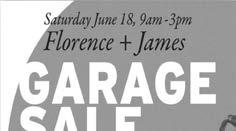

Lesson 2
FILE FOR
1 Brainstorm1 your ideas. PROJECT Choose 3-4 shops. What goods do they sell? What can you say about the selection and prices? Are they well-stocked? What is the staff2 like? Is it helpful or too busy to answer your questions? How can you get the information about the shops? 2 Write a short information about each of the shops. 3 Take a photo or make your drawings / cutting-outs to design your poster. Do captions. 4 Present your poster in class.



1Brainstorm [9breinstc:m] your ideas. — Висловлюй свої думки. 2staff [st$4:f] — працівники









